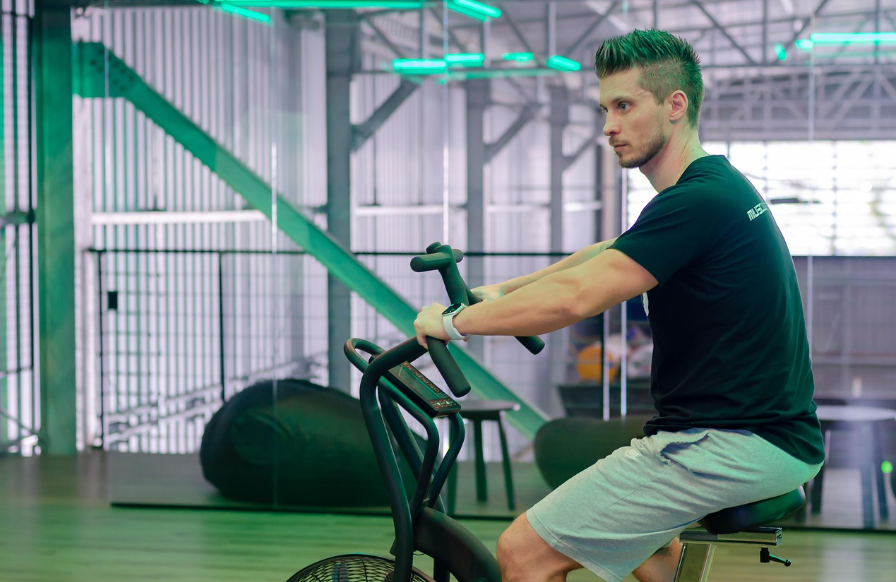In the pursuit of a healthy lifestyle, exercise often takes centre stage – and for good reason! From boosting our mood to keeping our hearts strong, the benefits are undeniable. But did you know that your workout routine can also play a significant role in your reproductive health as a man? It’s true! While regular physical activity is generally positive, understanding how to work out wisely is key to optimising your fertility.
For too long, the spotlight on fertility has primarily focused on women. However, male factors contribute to about half of all infertility cases. That means your lifestyle choices, including your exercise habits, are incredibly important when you’re trying to conceive.
So, let’s dive into the fascinating connection between exercise and male reproductive health, and how to strike the perfect balance for your sperm.
Exercise boosts fertility
Generally speaking, moderate and regular exercise is your friend when it comes to fertility. Here’s why:
- Improved blood flow: Good circulation is vital for all bodily functions, including the reproductive system. Exercise enhances blood flow, ensuring that your testes receive the nutrients and oxygen they need to produce healthy sperm.
- Hormonal balance: Regular physical activity can help maintain a healthy balance of hormones, including testosterone, which is crucial for sperm production.
- Weight management: Obesity is a known risk factor for male infertility. Excess body fat can negatively impact hormone levels and sperm quality. Exercise, combined with a healthy diet, helps maintain a healthy weight, indirectly benefiting your fertility.
- Stress reduction: High stress levels can negatively impact hormone production and overall well-being, potentially affecting fertility. Exercise is a fantastic stress reliever, helping to create a more favourable environment for conception.
Where can exercise go wrong for fertility?

While the benefits are clear, it’s possible to have too much of a good thing, or to exercise in ways that could potentially harm your reproductive health:
Over-exercising and overtraining
Pushing your body to its limits excessively can lead to chronic stress, hormonal imbalances (including a drop in testosterone), and even immune system suppression. This can negatively impact sperm production and quality. Think marathon training or extreme endurance sports without adequate recovery.
High-impact/high-heat activities
- Cycling: Long hours in the saddle, especially with ill-fitting cycling shorts or seats, can put pressure on the perineum and potentially increase scrotal temperature, both of which are detrimental to sperm.
- Hot baths/saunas/jacuzzis: While relaxing, prolonged exposure to high temperatures can significantly reduce sperm count and motility. This applies to intense exercise in very hot environments as well.
- Tight clothing: Wearing overly tight underwear or workout gear, especially during intense exercise, can trap heat around the testes, elevating scrotal temperature and potentially harming sperm.
- Impact on scrotal area: Certain activities that involve direct impact or trauma to the scrotal area, though less common, should be considered. Always wear appropriate protective gear when engaging in sports with this risk.
- Anabolic steroid use: This isn’t strictly about exercise, but often goes hand-in-hand with intense gym routines. Anabolic steroids, while building muscle, can severely disrupt natural hormone production, leading to shrunken testes and severely impaired sperm production. This is a critical point to avoid.
How to work out wisely for optimal male fertility

The key is balance, moderation, and smart choices. Here are some practical tips:
- Moderate is master: Aim for consistent, moderate-intensity exercise most days of the week. Think brisk walking, jogging, swimming, resistance training, or team sports. The general recommendation is around 150 minutes of moderate-intensity or 75 minutes of vigorous-intensity aerobic activity per week, spread out.
- Vary your routine: Don’t stick to just one type of exercise. Incorporate a mix of cardio, strength training, and flexibility work to keep your body balanced and prevent overuse injuries.
- Prioritise recovery: Rest days are just as important as active days. Allow your body time to repair and rebuild. Overtraining can be counterproductive.
- Stay cool down there: Opt for loose-fitting underwear (boxers are often recommended) and breathable workout clothing, especially during exercise. Limit prolonged exposure to hot tubs, saunas, and very hot baths. If you’re a keen cyclist, consider standing up on the pedals periodically and ensure your bike seat is comfortable and correctly fitted.
- Hydrate, hydrate, hydrate: Proper hydration is essential for overall health, including sperm production.
- Maintain a healthy weight: Exercise combined with a balanced diet will help you achieve and maintain a healthy BMI, a significant factor in fertility.
- Listen to your body: Pay attention to signs of overtraining like persistent fatigue, mood swings, or decreased performance. Adjust your routine accordingly.
- Avoid anabolic steroids: This cannot be stressed enough. The long-term damage to your reproductive system can be severe and sometimes irreversible.
Exercise is a powerful tool for overall health, and yes, for male fertility too. By adopting a “workout wisely” approach – focusing on moderation, variety, and avoiding excessive heat or overtraining – you can significantly contribute to your reproductive well-being. So, lace up those trainers, but remember: smart training is key to boosting your baby-making potential.
Zita West is a pioneer in fertility and reproductive health, helping countless individuals along their fertility journeys. For more information on supplements that increase male fertility, be sure to get in contact with Zita West on 01280 707400.
I’m Laura Wilson, a passionate blogger and content creator with a deep interest in business, finance, and entrepreneurship. I’ve had the opportunity to write for several premium blogs, sharing insights & practical advice for individuals & small businesses. I’m the founder and publisher of ukbusinessmag.co.uk, where I focus on creating valuable, easy-to-understand content to help UK startups & SMEs grow.



